Search
Search Results

Definition
Abbasid Dynasty
The Abbasids were an Arabic dynasty that initially ruled over most of the Islamic empire (save some western parts) after assuming the caliphate in 750 CE, later on, their empire fragmented, however, they retained spiritual supremacy as caliphs...
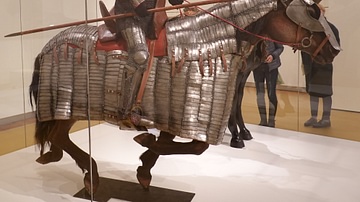
Image
Mamluk or Ottoman Cavalry
Armour for a cavalryman and his horse, produced c. 1500 CE. From the Mamluk Sultanate or Ottoman Empire. Collection of the Hermitage Amsterdam.
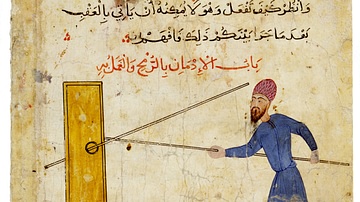
Image
Mamluk Training with a Lance
Mamluk lance practice from a Furusiyya manuscript. Egypt or Syria; c. 1500 CE, Leaf: 24 × 16.7 cm, David Collection.

Image
Gold Coin of Mamluk Sultan Al-Mansur Ali
Gold dinar of Mamluk sultan al-Mansur Ali minted in Cairo in 1258/59 CE.
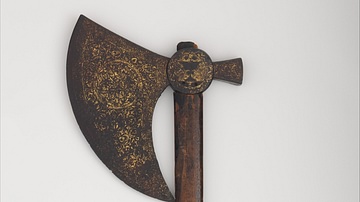
Image
Mamluk Axe
Wood-handled steel axe with gold decoration, engraved with the insignia of a Mamluk emir who held the honour of being cupbearer to the sultan. Used by a member of an axe-bearing corps, possibly similar to the Varangian Guard which protected...

Image
Map of the Delhi Sultanate under the Tughlaqs
A map showing the extent of the Delhi sultanate under the Tughlaq dynasty in the 14th century,
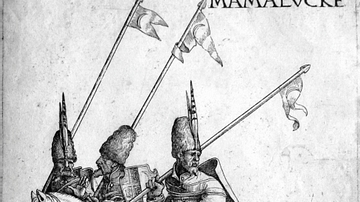
Image
Mamluk Lancers
Hopfer, Daniel (c. 1470-1536 CE): Etching, Three Mamelukes with lances on horseback.
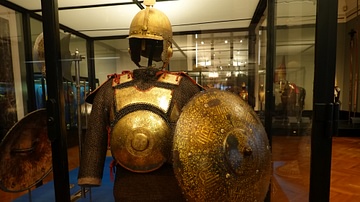
Image
Mamluk Armour
Richly decorated Mamluk armour from Syria or Egypt, c. 1500 CE. Collection of the Arms and Armor Museum, Vienna.
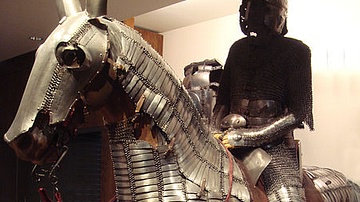
Image
Ottoman or Mamluk Horseman
This is an example of the armor of Ottoman or Mamluk horseman and his horse armor c. 1550 CE. Collection of the Army Museum, Paris.
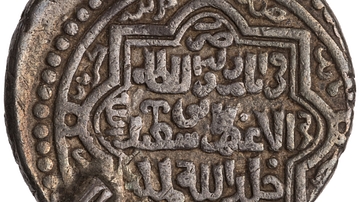
Image
Dinar of Mamluk Sultan Barakah
A dinar of Mamluk Sultan Barakah, minted in Alexandria in 1277/78 CE.